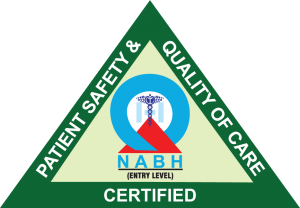BLOG- WHAT IS A HERNIA?
- Home
- Blog
- What is a hernia?
- Jun,1 2022
What is a hernia?
A hernia is a medical condition in which tissue or organs protrude from the wall of an organ, usually the abdomen. A hernia can occur anywhere along the abdominal wall but is most common in the lower abdominal area. It can happen when the muscle and fat are weakened, as can be caused by obesity, smoking, childbirth, or chronic constipation. A hernia may also form from a tear in the abdominal wall.
What are the different types of hernia?
There are a few different types of hernias, each with its symptoms and treatment options. The most common type include:
An inguinal hernia: It is a protrusion of abdominal contents through a weak spot in the abdominal wall. The most common site is in the groin, where the muscle and fatty tissues separate to allow passage of the testes from the abdomen into the scrotum. It occurs more frequently in people who are overweight or have occupations that require heavy lifting. It causes pain when pressure is applied to the groin area, when coughing, or bending, and can be treated with surgery.
An umbilical hernia: This is a type of abdominal hernia. It occurs when the intestine, bladder, or both, slip through a hole in the abdominal wall and protrude through the navel. Symptoms may include difficulty breathing and pain around the navel. The umbilical hernia can be caused by childbirth, obesity, or certain medical procedures. Treatment typically involves surgery to repair the defect and strengthen the abdominal wall.
Femoral hernia: It is a condition in which a small hole forms in the wall of the femur (thigh bone). This hole can allow the bowel or other material to escape from the abdomen. Femoral hernia is caused by a combination of factors, including childbirth and obesity. Treatment typically includes surgery to repair the hole and replace the damaged femur with a synthetic bone.
What causes a hernia?
Hernias are caused by many different things, but the most common ones are:
- Congenital (at child birth)
- Weight lifting
- Previous surgery
- Stool & urine obstruction
- Chronic cough
- Post pregnancy
- Obesity
What are the symptoms of a hernia?
Hernias can be very painful, especially when they occur in a sensitive area such as the groin. They often occur when the abdomen is in a normal position and the patient is straining to pass stool or has been sitting for long periods. Symptoms of a hernia include pain when movement is attempted and a bulging sensation when pressure is applied to the area. It may also cause abdominal pain and discomfort, an inability to urinate or defecate normally, and bowel obstruction.
What is the risk of hernia?
There is a significant risk of developing a hernia, which is an abdominal condition in which part of the intestine, stomach or rectum bulges through the skin. A hernia can occur in individuals who engage in heavy lifting, as this activity can cause the abdominal muscles to stretch and create an opening in the wall of the abdomen through which abdominal contents (faeces, gas, intestines) can escape. Other risks associated with hernia include obesity, smoking, and drinking. If left untreated, hernias can cause pain and intestinal obstruction. In some cases, surgery may be required to repair the tear. In some cases, however, a hernia may go undetected and slowly get worse over time. This can lead to serious health problems, such as blood loss, infection, or damage to nearby organs.
What are the treatments available for hernia?
Hernias are a common occurrence, affecting men, women and children of all ages. Treatment for a hernia depends on the type and severity of the hernia. In most cases, surgery is required to repair the hernia. Treatment options can also include medications, physical therapy, and operations

